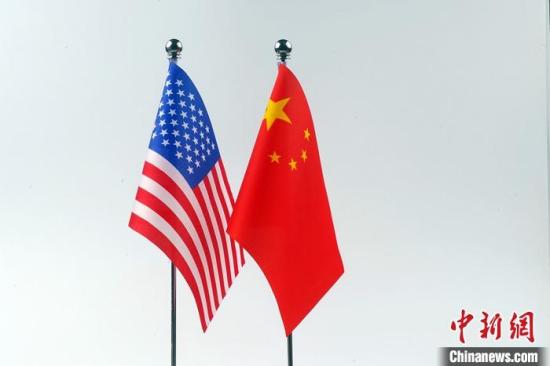Latest blacklist issued by U.S. a 'chaotic' effort
Experts slam move as a unilateral tool against competition principles
Various blacklists issued by the U.S. appear "chaotic and arbitrary", serving merely as tools to intensify its targeting of China's competitive sectors, industry experts said on Thursday.
They made the comments as the Office of the United States Trade Representative removed WeChat, a leading social media platform owned by Tencent Holdings, from the so-called "notorious markets list" on Wednesday, two days after the U.S. Department of Defense added Tencent to a long list of Chinese companies it has deemed to have defense-related ties.
Cheng Dawei, a professor of economics at Renmin University of China, said that the latest so-called "notorious markets list" seems to be a tool targeting China's more competitive sectors.
"In the past, the list primarily focused on protecting services industries such as film copyrights and online content copyrights. This time, however, the list applies to industries with strengths in large-scale manufacturing, which are key to China's current exports," Cheng said.
With the latest list including both Chinese online marketplaces and brick-and-mortar offline markets, she said that the U.S. is tightening its suppression of Chinese companies while broadening the list of restricted industries and companies.
Shi Hongxiu, a professor of economics at the National Academy of Governance, said: "Recent U.S. moves appear chaotic, resembling a haphazard patchwork. Amid the tide of globalization, Washington's attempts to maintain its hegemony through unilateral means will ultimately fail in the face of historical progress."
The list, dubbed the 2024 Review of Notorious Markets for Counterfeiting and Piracy, includes 38 online markets and 33 physical markets that are reported to engage in or facilitate substantial trademark counterfeiting or copyright piracy.
WeChat was added to the list in 2022, and was accused of being a convenient link to third party e-commerce sites selling fake goods at the time. It was removed from the 2024 list.
ByteDance-owned Douyin Mall, the e-commerce platform of TikTok's Chinese sister app, was included on the list for the first time. Other Chinese e-commerce sites on the list include Alibaba Group Holding's Taobao, PDD Holdings' Pinduoduo and Baidu's cloud storage service Baidu Wangpan.
The list comes just two days after the Pentagon added Tencent and major electric vehicle battery maker Contemporary Amperex Technology Co Ltd to a long list of Chinese companies it has deemed to have defense-related ties.
At the same time, the Pentagon also removed six companies that it said no longer met the requirements for such a designation, including AI firm Megvii Technology, China Railway Construction Corp Ltd, China State Construction Group Co and China Telecommunications Corp.
In response to the blacklist, Tencent said on Tuesday that its inclusion is a "mistake", as the company is neither a Chinese defense-related firm nor a contributor to China's defense sector. CATL also called the designation a mistake, saying it "is not engaged in any defense-related activities".
Tu Xinquan, dean of the China Institute for WTO Studies at the University of International Business and Economics, said that the so-called lists are nothing more than a reflection of U.S. panic over China's technological ascent.
"The more Washington escalates its measures against China, the less effective these measures prove to be, and the more they reveal their underlying fears," Tu said.
He said: "The U.S. approach of arbitrarily categorizing and suppressing Chinese companies without justification runs counter to the market competition principles and contractual spirit it has long championed. Such moves not only erode foreign companies' confidence in investing and operating in the U.S., but also harm the tangible interests of U.S. companies and investors."
The Ministry of Commerce said on Tuesday that such moves undermined the security and stability of global industrial and supply chains, and China will take necessary measures to resolutely safeguard the legitimate rights and interests of Chinese entities.

